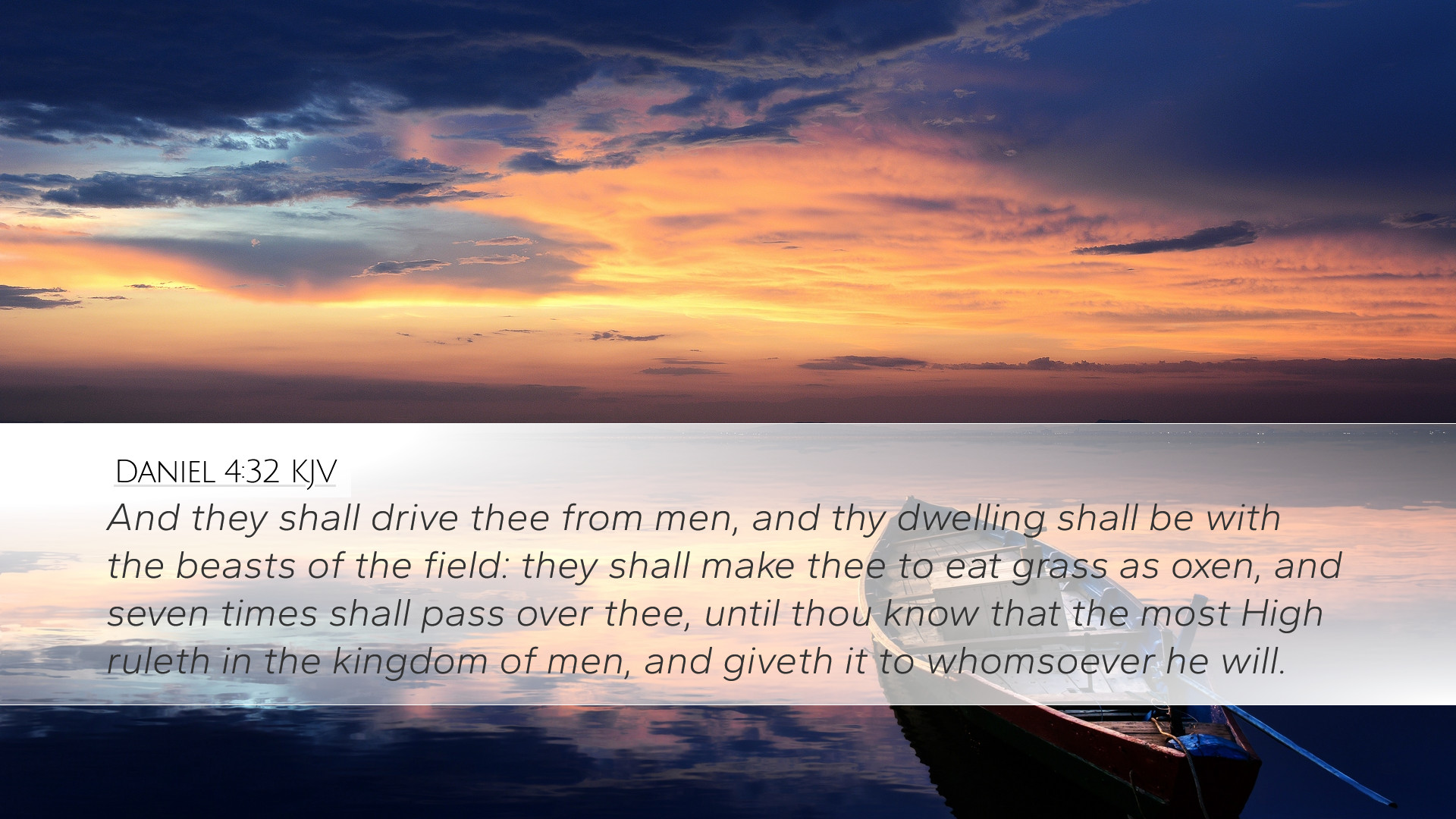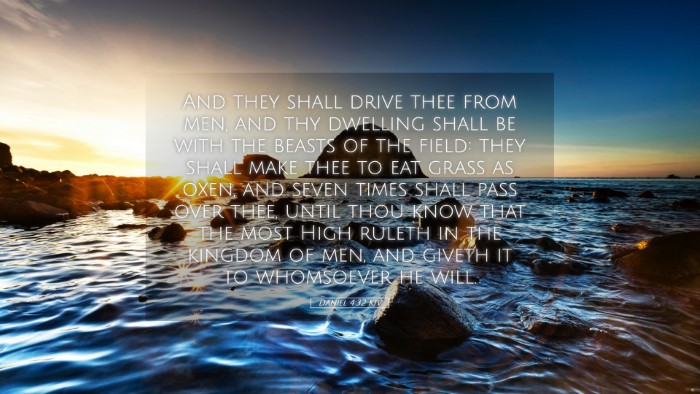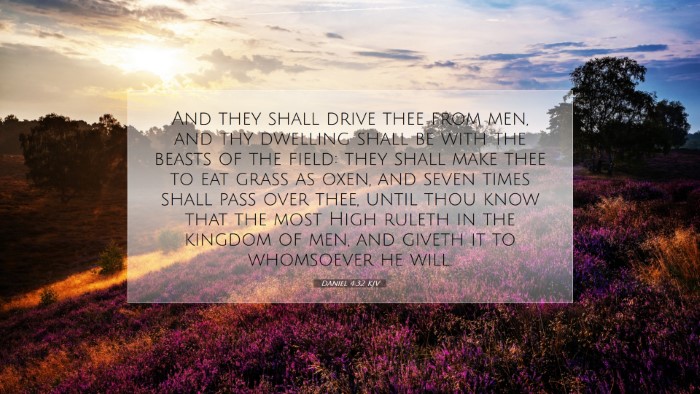Commentary on Daniel 4:32
Daniel 4:32 states, "And they shall drive thee from men, and thy dwelling shall be with the beasts of the field: they shall make thee to eat grass as oxen, and seven times shall pass over thee, until thou know that the most High ruleth in the kingdom of men, and giveth it to whomsoever he will." This verse encapsulates a pivotal moment in the narrative of King Nebuchadnezzar's humbling and serves as a profound theological lesson regarding divine sovereignty and human pride. The insights of various esteemed public domain commentators illuminate its significance.
The Sovereignty of God
Matthew Henry emphasizes the supreme authority of God as expressed in this verse. He notes that God’s will is supreme and uncontested; even a mighty king like Nebuchadnezzar is not exempt from His judgment. This passage illustrates that God can humble the proud and elevate the humble, reinforcing the biblical principle that God's ways are above human understanding.
The Nature of Judgment
Henry further elaborates on the nature of divine judgment. He describes Nebuchadnezzar's transformation into a state of mental derangement as a physical manifestation of spiritual pride. This judgment served not only as punishment but as a means of restoration—a call to recognize God’s ultimate authority over earthly kingdoms.
The Condition of the Heart
Albert Barnes provides an insightful analysis regarding the heart condition of Nebuchadnezzar. He suggests that the king’s arrogance directly led to this drastic punishment. Barnes states that the verse underlines the necessary humbling that must occur before one can truly recognize and submit to the authority of God. The eating of grass like an ox symbolizes a complete loss of dignity and rationality, representing the extent to which pride can lead one away from God.
- Humility Before God: Barnes implies that this humiliation teaches us the crucial lesson that humanity is entirely dependent on God for wisdom and power.
- Recognition of God’s Authority: The phrase "until thou know" emphasizes the transition from ignorance to knowledge concerning divine sovereignty.
The Role of Time in Divine Correction
Adam Clarke also notes the significance of “seven times shall pass over thee.” This period represents a divinely appointed duration wherein Nebuchadnezzar is to reflect on his condition and learn humility. The number seven often signifies completeness in the Bible, suggesting that Nebuchadnezzar’s lesson will be complete once he fully comprehends his position in relation to God’s sovereignty.
Spiritual Growth Through Trials
Clarke points out that this time of trial is both a punishment and an opportunity for growth, indicating that God uses life's challenges to shape our understanding and character. It serves as an important reminder for those in positions of authority or leadership within the church, to remain humble and reliant on God’s wisdom.
Theological Implications
This verse raises significant theological themes about divine sovereignty, human pride, and repentance that have enduring relevance:
- The Sovereign Rule of God: God's rule over creation underscores His omnipotence and omniscience, establishing a framework for understanding human governance and authority.
- Pride Before Fall: The narrative exemplifies the age-old biblical wisdom that pride leads to downfall, serving as a cautionary tale for leaders and believers alike.
- Redemptive Purpose in Judgment: God's judgments, while often severe, are aimed at restoration and repentance, highlighting His desire for a relationship with humanity.
Practical Applications for Believers
The insights gained from Daniel 4:32 resonate powerfully with today's congregations, offering numerous practical applications:
- Self-Examination: Believers are encouraged to regularly assess their own hearts for pride and self-sufficiency.
- Cultivating Humility: The importance of cultivating a humble spirit is essential for spiritual growth and healthy relationships within the church community.
- Trusting in Divine Sovereignty: In challenging times, believers should find comfort in the assurance that God is ultimately in control, irrespective of the circumstances.
Conclusion
Daniel 4:32 offers deep theological insight into the nature of God’s sovereignty and the human condition. The combined reflections of Matthew Henry, Albert Barnes, and Adam Clarke challenge us to approach God with humility, recognizing our dependence on Him. This verse serves as a timeless reminder for pastors, students, and theologians: that true wisdom begins with acknowledging the authority of God in our lives. In understanding Nebuchadnezzar’s story, we glean vital lessons on the consequences of pride and the transformative power of humility before our Creator.


